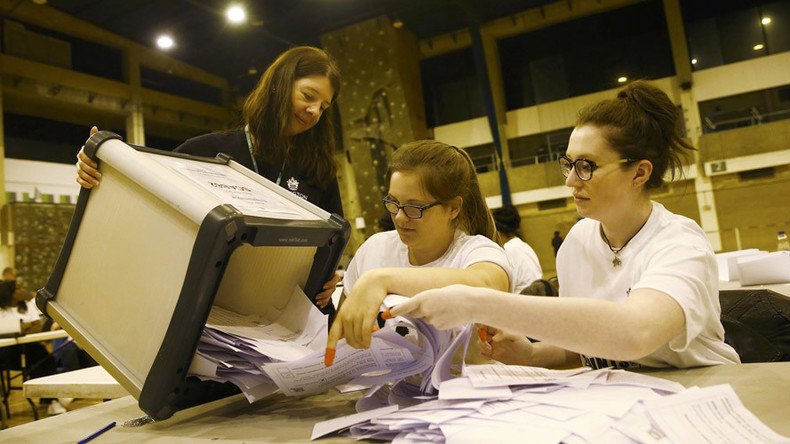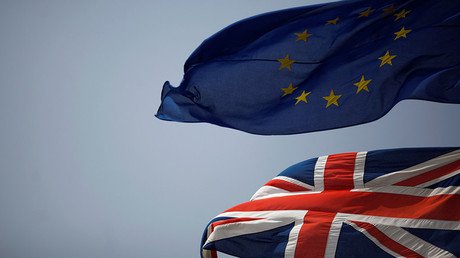Brexit vote was a tie, Britain will never leave EU - academic

The EU referendum result was actually a draw and a Brexit should not be implemented because there would be “no country left” afterwards, an expert on European and UK constitutional law says.
Dr Jo Murkens of the London School of Economics says the referendum result was split across the UK, with Scotland and Northern Ireland voting clearly to remain in the EU and voters in England and Wales opting to leave.
He says Brexit could therefore be avoided with willing leadership, saying he could see “no way” any prime minister would go through with it.
“There would be no country left if we leave the EU. I see no way in which the UK can leave the EU and survive,” Murkens told the Evening Standard.
He said Britain’s withdrawal from the EU could have devastating consequences for the country, saying it would fragment the UK’s union which has existed since 1707.
“There’s no political will in Scotland and Northern Ireland to remain in the UK if it leaves the EU. I can see no prime minister who would want to preside over the break-up of the United Kingdom.”
In a 2014 referendum, the Scots rejected leaving the UK by 55 percent to 45 percent.
But the Brexit vote has offered a renewed opportunity for nationalists to push for independence, with 62 percent of Scots voting to remain in the EU.
Scottish First Minister Nicola Sturgeon, leader of the Scottish National Party (SNP), has pushed forward a motion in the Scottish parliament for a second referendum on independence from the United Kingdom.
In Northern Ireland, there have also been calls for reunification with the Republic of Ireland and a border poll on a united Ireland.
“The people of the north of Ireland have made it clear at the polls that they wish to remain in the EU,” said First Minister Martin McGuinness of Sinn Fein.
Since the vote last Thursday, there have been a number of arguments put forward that Brexit should not, or may not, ever happen.
By law, the UK’s legislatures in Wales, Scotland and Northern Ireland must be consulted before EU laws can be annulled – which could put a roadblock in EU Brexit negotiations.
Sturgeon has already said she would tell MPs to refuse such “legislative consent” if the Scottish parliament was required to ratify the UK’s withdrawal.
In theory, this veto power could be revoked by the UK parliament, but doing so would likely feed the pro-independence camp in Scotland and Northern Ireland.
Article 50 of the Lisbon Treaty – the formal process by which Britain would leave the bloc – still hasn’t been triggered. London and Brussels appear to have reached a stalemate as the EU has ruled out any possibility of informal talks on a Brexit until the article is invoked.
The referendum was advisory, not binding, and Westminster could technically refuse to ratify the result.
There are also calls for a referendum re-run, with a petition demanding another vote reaching 4 million signatures.














